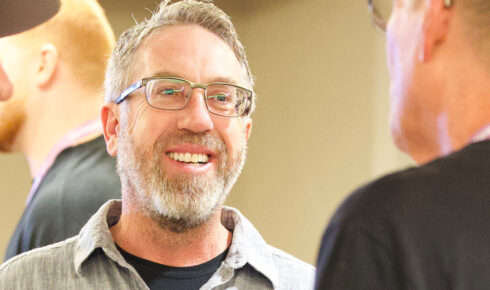
Making room for diversity means a congregation will be welcoming to everyone in their community. I saw this kind of openness last spring on a visit to Nebraska. Though it has only about 125 people, The Rock Church (North Platte Foursquare Church) had just remodeled its entire children’s area, which included adding a room for kids with special needs.
Thanks to this step, no child or parent feels left out, no matter what their physical or emotional needs. Three families now attend this church because their kids have a place that welcomes them.
Diversity isn’t just a topic of discussion but something I represent. The son of a single mother, I immigrated to the U.S. in 1988 because of civil war in Nicaragua. Angelus Temple Hispanic Foursquare Church in Los Angeles became our home church. Each Sunday after church we lined up to receive food distributed by the English congregation, pastored by Harold and Winona Helms at the time.
The smiles, hugs and love from the Helmses, staff and volunteers impacted my life forever. Not only was this a huge blessing for a single mother who worked in hotel room service, but church became family to me. I didn’t know anything about language barriers or socioeconomic classes. I just knew God loved me.
Decades later, we have the opportunity to be the same kind of church. Welcoming diversity can be done in various forms as led by the Spirit, but it requires intentionality. In other words, as a church you must be thinking of ways to create opportunities. For this to happen, you must get to know your home, your community and your people.
Loving God and serving people means there are no cultural, gender, age or language barriers that love can’t overcome.
This will entail being real and asking yourself some tough questions, such as: When was the last time a woman preached on Sunday (besides Mother’s Day)? Do you let your youth pastor preach? Are kids and youth platformed regularly, or just on special occasions like “Graduation Sunday”?
The answers may expose things about you and your team, which can lead to honest conversations of why you do things a certain way. You have to be willing to be vulnerable, grow and, most important, be open to change.
Say your church is in the middle of a large percentage of people from Nepal. A good place to start could be translating your church sign into Nepali. Can you imagine what this will do? People who come to your community from Nepal will feel loved and welcomed before they even walk into your building. Once they come, you should have a plan for them to be able to connect and be engaged, such as sponsoring a home group for them.
Another way you can be intentional is by making sure you platform diversity during services. This should not only include different types of people, but also different genders and ages. What if you had a 10-year-old child open your service by greeting the congregation? (That could be a lot of fun!) Think of how much value that would bring. You will be raising up future leaders, making room for them to serve alongside you, and practicing what Matthew 19:13-14, Mark 10:13-16 and Luke 18:15-17 instruct.
Making room for diversity will remind you there is a difference between doing things with excellence versus performance. In other words, to be OK with things not always being smooth and not having to control everything that happens.
Allow the Holy Spirit to minister and give everyone who walks in your church the opportunity to experience a glimpse of heaven, where there will be no borders, no gender and no age segregation (Rev. 5:9, 7:9). Every nation, tribe, people and language will be standing before the throne and before the Lamb.
When we see the importance of making room for diversity, we will be the church that God uses to brings solutions to some of the problems in our city, community and nation. Loving God and serving people means there are no cultural, gender, age or language barriers that love can’t overcome.
This article was written with Ken Walker, a freelancer writer in Huntington, W.V.


